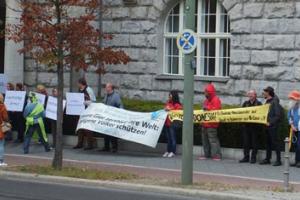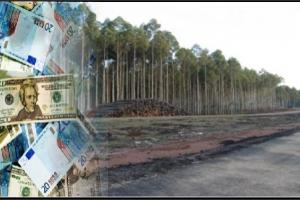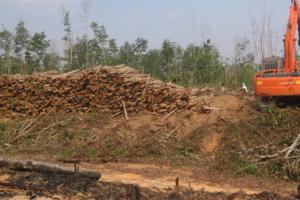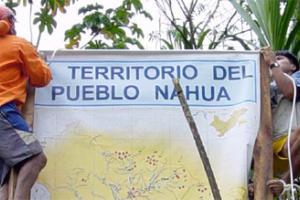Millions of hectares of industrial oil palm plantations have been expanding in many countries of Asia, Africa and Latin America with a well documented history of tropical deforestation –including enormous fires- and a sad toll of human rights violations.
However, the powerful interests behind this business continue actively promoting this crop, against a background of growing opposition at the local level.
The Green Economy
The Green Economy is a tactic used to “clean up” the image of corporations rather than address corporate capture and capitalism as the true drivers of deforestation. False solutions promoted under the Green Economy include certification, sustainable forest management, ecosystem services, REDD+, the bioeconomy, nature-based climate solutions, and zero net deforestation. Rather than stopping it, these “solutions” support corporate-driven destruction that is causing a deep social and ecological crisis.
Declarations
17 July 2013
Money can’t buy environmental justice
Bulletin articles
30 June 2013
The expansion of large-scale monoculture tree plantations in the global South dates back to the 20th century, becoming particularly marked in the 1960s, and is expected to continue at an ever increasing rate in the 21st century alongside the growing globalization of the economy and markets.
Bulletin articles
30 June 2013
The emergence of “Paper Dragons”. (Available in Indonesian).
Bulletin articles
30 June 2013
It was recently reported that the pulp and paper consortium Montes del Plata, a joint venture between Swedish-Finnish forestry giant Stora Enso and the Chilean corporation Arauco, has sold 45,000 hectares of land in the departments of Tacuarembó and Rivera, most of it covered by tree plantations, to the U.S. investment management firm GMO. (1)
Bulletin articles
30 May 2013
The Peruvian Amazon, which covers more than 61% of the country’s territory, is the fourth largest area of tropical rainforest in the world. Thanks to this extensive forest cover, Peru also has an extremely high degree of biodiversity; for instance, it ranks in fifth place worldwide for plant diversity, with close to 25,000 recorded species.
Bulletin articles
30 April 2013
The certification of industrial tree plantations by the Forest Stewardship Council (FSC) has served as a tool to legitimize the large-scale monoculture plantation model. The FSC’s internationally recognized certification scheme is supposed to ensure consumers that the companies that have been awarded its “green” label practise “environmentally appropriate, socially beneficial and economically viable” forest management.
Bulletin articles
30 April 2013
Organizations and individuals in the state of Acre and other states in Brazil sent an open letter this month to the governor of California and the California REDD Offset Working Group, challenging the legitimacy of a “consultation” carried out – through three workshops in California and over the internet, in English – regarding the inclusion of REDD offsets, primarily from Acre, in California’s carbon trading scheme.
Bulletin articles
30 April 2013
REDD has been contentious ever since it was presented during UN climate talks in Bali, Indonesia, in 2007 as a way to supposedly reduce deforestation. In addition to pointing out that REDD as a carbon market instrument is a false solution to climate change, many indigenous peoples in particular have expressed concern that REDD will undermine indigenous peoples’ rights, become a mechanism that divides communities and will put indigenous peoples’ control over and access to their traditional territories at risk.
Bulletin articles
30 March 2013
1. Introduction
Other information
30 March 2013
On 27 February 2013, Panama’s Indigenous Peoples Coordinating Body, COONAPIP, withdrew from the UN-REDD process in Panama. In a letter announcing the withdrawal, COONAPIP explains that UN-REDD “does not currently offer guarantees for respecting indigenous rights” or “the full and effective participation of the Indigenous Peoples of Panama”.
Other information
30 March 2013
“Credibility at Stake - How FSC Sweden Fails to Safeguard Forest Biodiversity”, a new report in English by the Swedish Society for Nature Conservation (SSNC), available at http://www.naturskyddsforeningen.se/sites/default/files/dokument-media/rapporter/2013_engelsk_rapport_skog_credibility_at_stake.pdf





